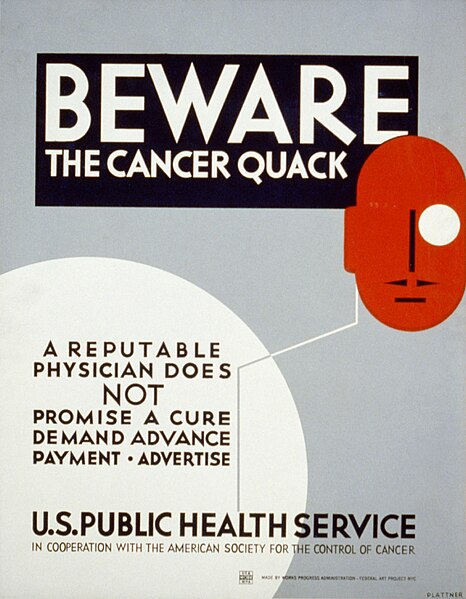A charlatan is a person practicing quackery or a similar confidence trick in order to obtain money, power, fame, or other advantages through pretense or deception. One example of a charlatan appears in the Canterbury Tales story "The Pardoner's Tale," with the Pardoner who tricks sinners into buying fake religious relics. Synonyms for charlatan include shyster, quack, or faker. Quack is a reference to quackery or the practice of dubious medicine, including the sale of snake oil, or a person who does not have medical training who purports to provide medical services.
Pietro Longhi: The Charlatan, 1757
The Pardoner, from the Ellesmere Chaucer
Quackery, often synonymous with health fraud, is the promotion of fraudulent or ignorant medical practices. A quack is a "fraudulent or ignorant pretender to medical skill" or "a person who pretends, professionally or publicly, to have skill, knowledge, qualification or credentials they do not possess; a charlatan or snake oil salesman". The term quack is a clipped form of the archaic term quacksalver, from Dutch: kwakzalver a "hawker of salve". In the Middle Ages the term quack meant "shouting". The quacksalvers sold their wares at markets by shouting to gain attention.
WPA poster, 1936–38
William Hogarth's The Inspection, the third canvas in his Marriage à-la-mode (The Visit to the Quack Doctor)
Pietro Longhi's The Charlatan (1757)
The Surgeon by Jan Sanders van Hemessen (1555)





